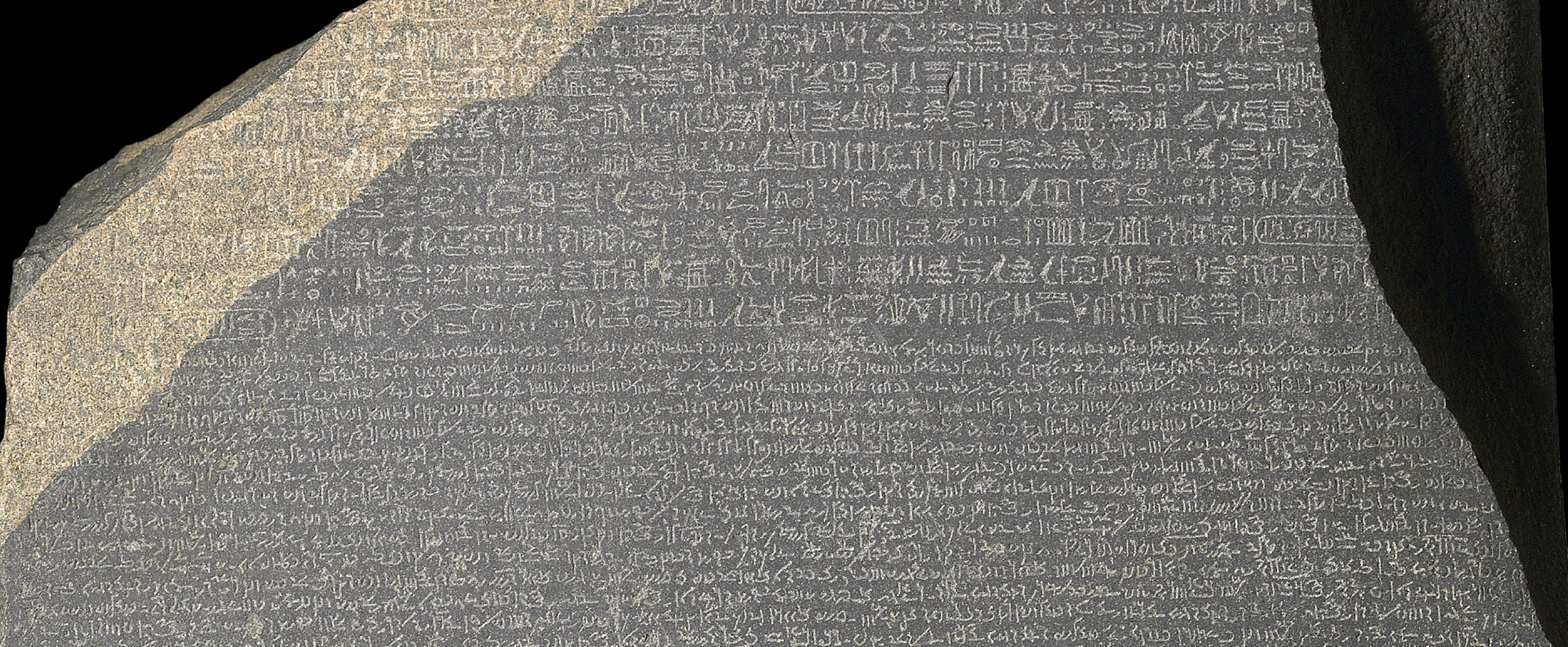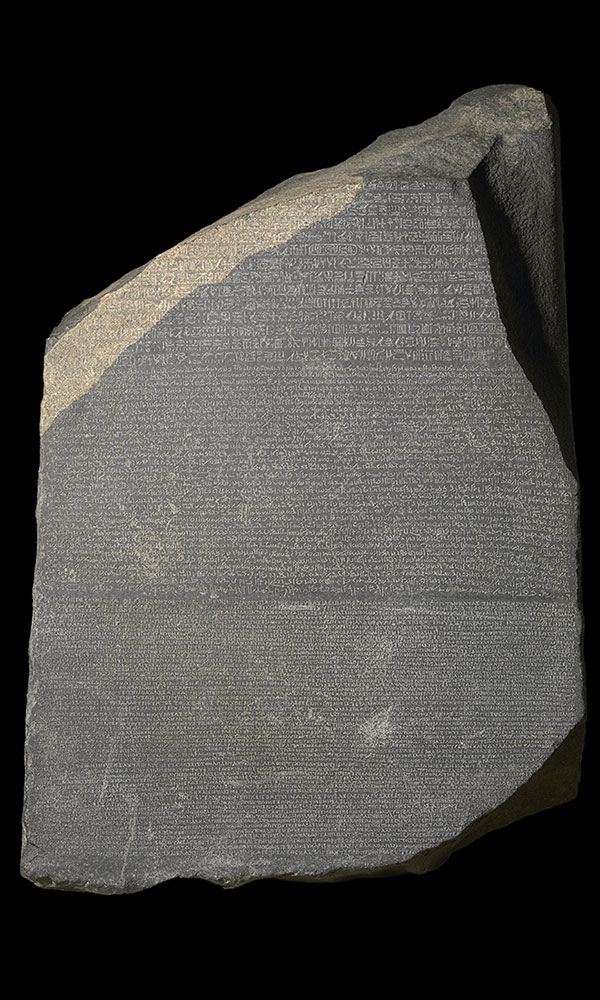LONDON, ENGLAND—A team led by Adam Gibson of University College London has developed a non-destructive scanning technique to read what was written on pieces of papyrus some 2,000 years ago, before it was recycled and made into funeral masks and mummy cases, according to a BBC News report. In the past, objects made of cartonnage would have been taken apart in order to read what had been obscured by paint, plaster, and paste. “They are finite resources and we now have a technology to both preserve those beautiful objects and also look inside them to understand the way Egyptians lived through their documentary evidence—and the things they wrote down and the things that were important to them,” explained Kathryn Piquette of University College London. The new technique revealed the name “Irethorru,” which is translated as “the eye of Horus is against my enemies,” on the footplate of a mummy case housed at Chiddingstone Castle in Kent. The name had previously been invisible to the naked eye. For more, go to “Heart Attack of the Mummies.”
Scientists Scan Ancient Egyptian Cartonnage
News January 3, 2018
Recommended Articles
Artifacts July/August 2025
Maya Ceramic Figurine
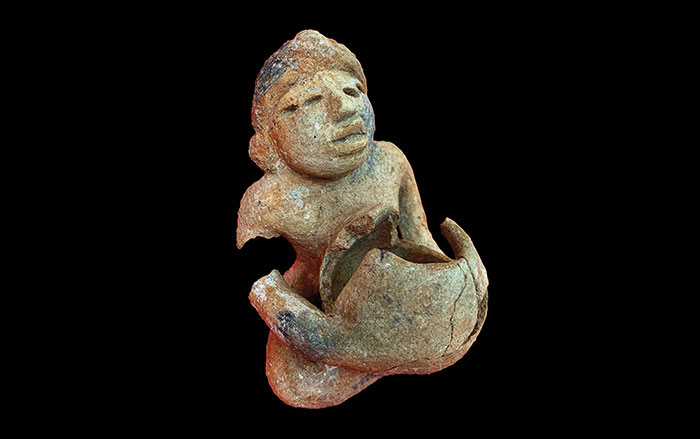
Off the Grid July/August 2025
Vichama, Peru
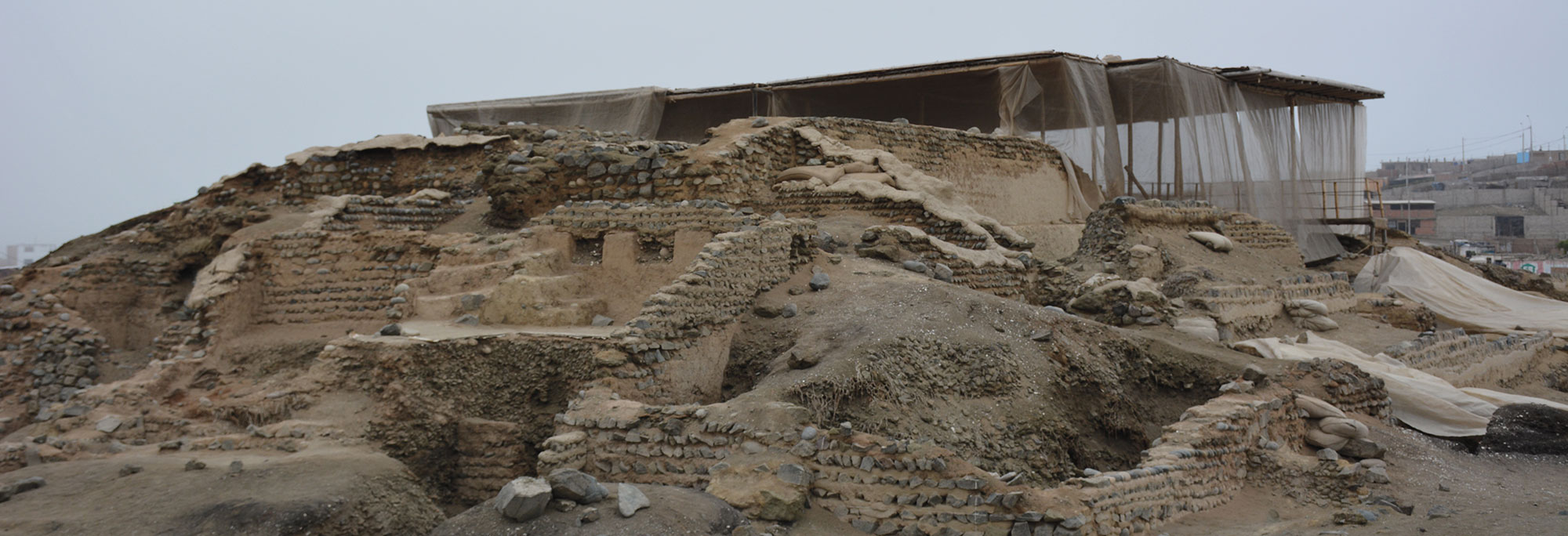
Digs & Discoveries July/August 2025
Bound for Heaven
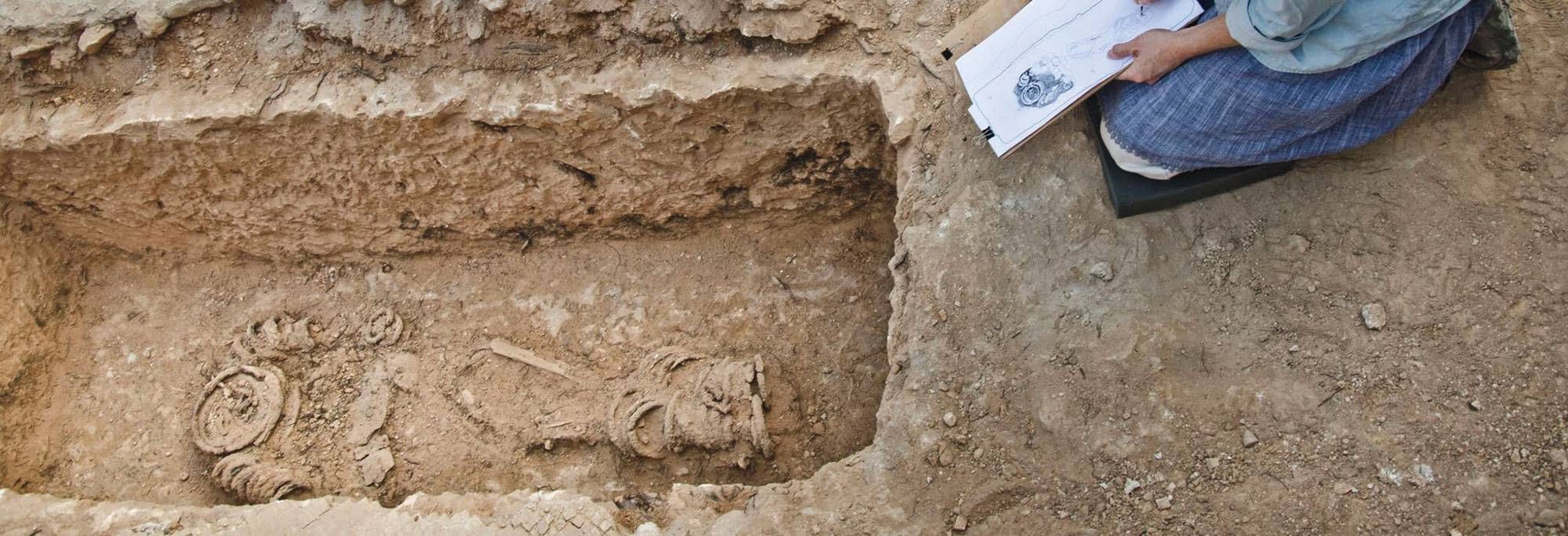
Digs & Discoveries July/August 2025
Saints Alive
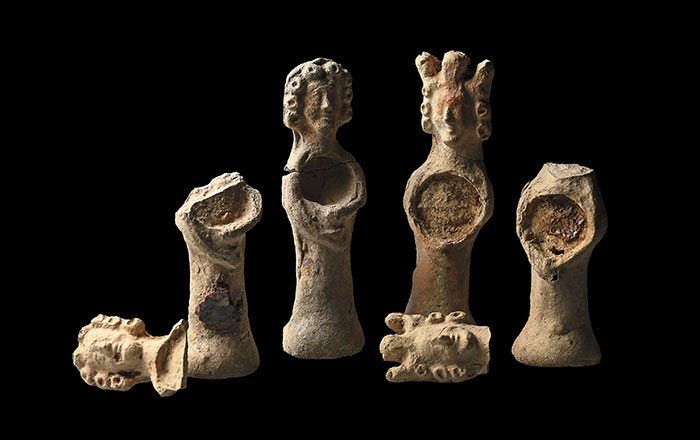
-
Features November/December 2017
Reading the White Shaman Mural
Paintings in a Texas canyon may depict mythic narratives that have endured for millennia
 (Chester Leeds, Courtesy Shumla)
(Chester Leeds, Courtesy Shumla) -
Letter From Singapore November/December 2017
The Lion City's Glorious Past
The founding mythology of this city-state was once thought to be pure fiction—ARCHAEOLOGY says otherwise
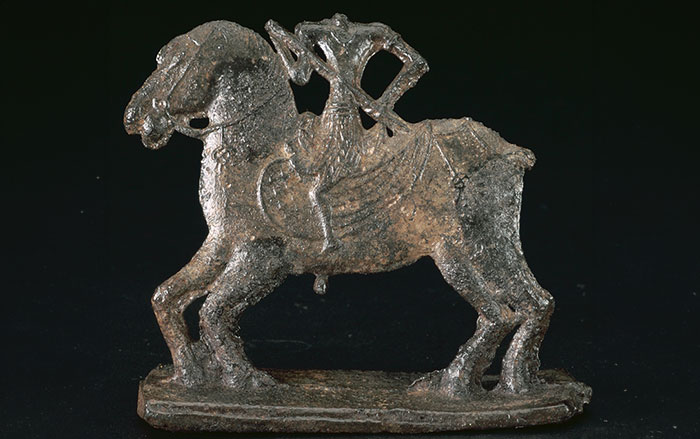 (Courtesy John Miksic)
(Courtesy John Miksic) -
Artifacts November/December 2017
Phoenician Mask Mold
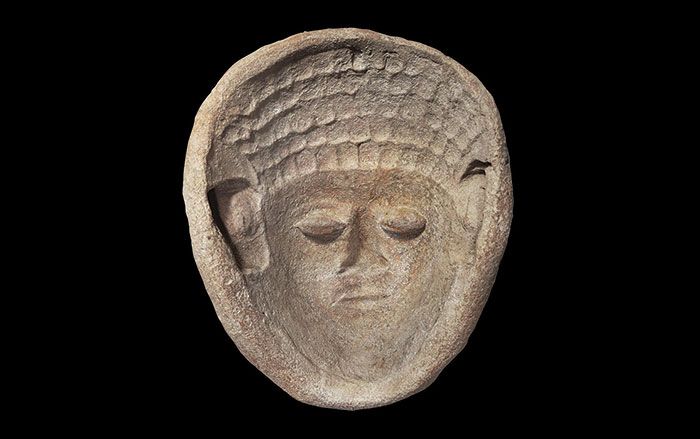 (Courtesy Michael Jasmin)
(Courtesy Michael Jasmin) -
Digs & Discoveries November/December 2017
The Hidden Stories of the York Gospel
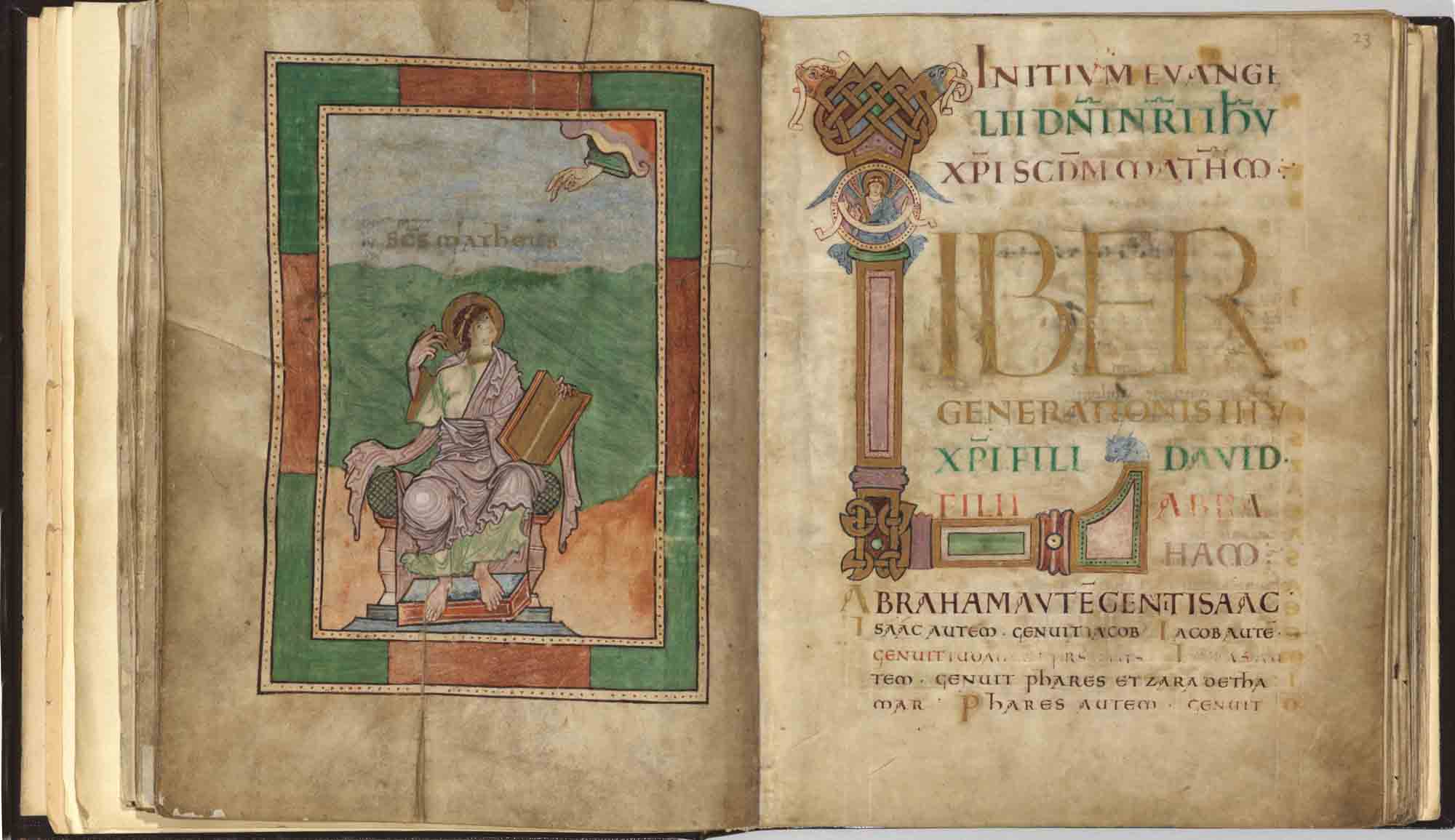 (© Chapter of York)
(© Chapter of York)


